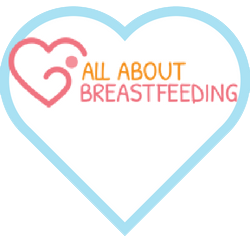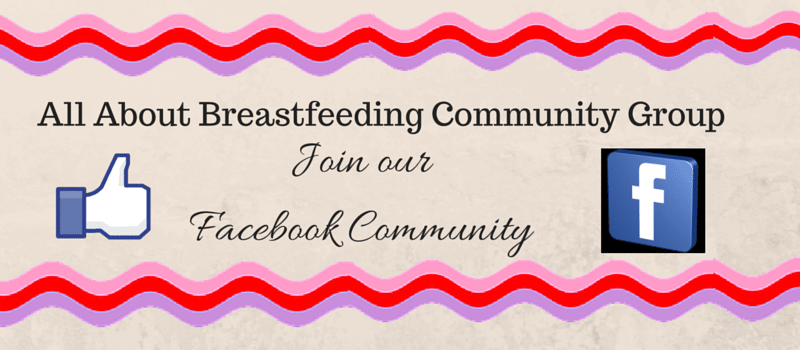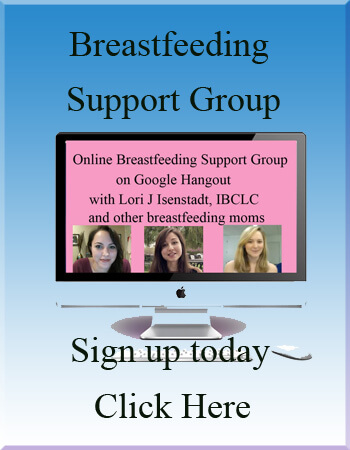I think the biggest misconception when it comes to babies feeding and sleeping cycles is that it is our job as parents to get our babies on a schedule. In theory, this sounds like it would really work and is in the best interest of the baby and parents. If your baby ate and slept on a schedule that you designed, this would fit nicely into your day and you would have a routine that you can count on. In theory, seems good, However, when adults attempt to have this degree of control over a new baby, it typically is a hard thing to make happen and if you are breastfeeding your baby, this forced routine causes lots of breastfeeding difficulty.
There are some very real common sense and practical reasons why this is just not a safe way to go about feeding your baby.
For starters, we want you to have the best opportunity to build up a good supply, one that meets your babies needs. All the studies up to this date, have shown that the way to build a good supply is to understand normal newborn breastfeeding behavior, normal frequency of feeds, and normal weight gain. It is helpful to understand exactly how the breast makes milk. I have done a show on this and you can go back to Episode #110 for that info.
Your baby was born with a stomach that is the size of a small marble. This makes it impossible for them to have large feedings and keep large volumes down without spitting up.
Your milk supply is also available in small amounts initially and gradually over time builds in volume.
I don’t think it is an accident that babies bellies are small and the volume of milk is about a quarter of an ounce per feeding on the first day and gradually working up to about 1 oz in Five days. This means that it is normal for a baby to want to feed frequently as their bellies can only hold so much at one time. This also fits nicely into the way we know that your body makes milk – initially small amounts and gradually increases the supply, particularly in the early days of breastfeeding.
In a nutshell, what we know to be true is that the more frequent your breasts are stimulated, the more frequent the milk is removed efficiently, the more likely you are to build up a supply that meets your babies needs. Frequent breastfeeding in the early first few days will typically lead to your milk volume increasing quicker. Frequent breastfeeds increases a mother’s prolactin levels and high prolactin levels are needed to establish a good milk supply for your baby.
As a new mother, I realized that professionals seemed to assume that I knew what I was doing. As much as I hated to admit it , there was so much that I did not know. Perhaps with others it is instinctive, however, for me, some things just were not. When people would say – feed your baby whenever she is hungry, I thought I knew the signs, and yet, I realized that I could have used these pointers:
I find that is is helpful to learn about the early, active and late signs of hunger for a newborn:
Early
• Smacking or licking lips
• Opening and closing mouth
• Sucking on lips, tongue, hands, fingers, toes, toys, or clothing
Active
• Rooting around on the chest of whoever is carrying him
• Trying to position for nursing, either by lying back or pulling on your clothes
• Fidgeting or squirming around a lot
• Hitting you on the arm or chest repeatedly
• Fussing or breathing fast
Late (calm baby before feeding)
• Moving head frantically from side to side
• Crying
While it is not always possible, it is nice if you are able to bring your baby to the breast during the early signs of hunger. The reason I say is that it is not always possible, is because as much as we can outline the signs for you, there are some babies that I call the zero to ten babies. Their is no leisurely, quietly and ever so gradually showing you signs. They just seem to wake up screaming, with little to no time to respond. Sometimes it is not possible because you may be in the other room and not see them. You may have taken a shower and turn off the water and hear your otherwise sleeping baby, just screaming loudly. Please do not feel bad. Sometimes it just is what it is
Let’s start with the first few days of your babies life:
Colostrum, the milk produced during the first few days postpartum, is lower in fat and calories than is more mature milk. It is also produced in smaller amounts. A higher-frequency newborn feeding schedule helps babies compensate for the lower caloric density of their milk. Please go back and listen to Episode # if you would like a lot more detailed info about colostrum.
Some other real cool info to pass on to you.
Have you heard other mothers say that their babies were diagnosed with jaundice?
Jaundice, a common condition in newborns, refers to the yellow color of the skin and whites of the eyes that happens when there is too much bilirubin in the blood.
Did/does your baby have jaundice?
YesNoI don’t know
VoteView Results
Bilirubin (bill-uh-ROO-bin) is produced by the normal breakdown of red blood cells. Normally, it passes through the liver, which releases it into the intestines as bile (a liquid that helps with digestion).
Jaundice happens when bilirubin builds up faster than a newborn’s liver can break it down and pass it from the body.
To be clear, I am talking about basic jaundice in the newborn. Typically, the excess red blood cells bind with the stool and that is how the body rids itself of the excess red blood cells.
We want your baby to be feeding frequently enough to take in plenty of colostrum. We know that colostrum has a laxative effect. The milk binds with the bilirubin which is excreted through the stools.
I know some people feel it is good enough for a baby to be keeping up with recommended pees per day, however, we know that about 2 % of bilirubin is excreted through urine and 98% is excreted through the stools.
So, you see. The body has its own wisdom. Your milk has exactly what your baby needs for literally hundreds of reasons. One of the many reasons that makes colostrum so incredibly special is its laxative properties. We need for your baby to get enough colostrum to help eliminate excess red blood cells and avoid jaundice from going from normal newborn jaundice to something to worry about and something to be separated from your baby.
Sure the bili lights and bili blankets can help the body rid of excess bili lights. But why not prevent this from happening in the first place?
Water will help baby urinate more but not get rid of red blood cells. So no water or sugar water for your newborn.
Formula can be very binding/constipating for babies and when this happens, there is less stooling and the bilirubin levels rise.
Frequent early feedings means plenty of colostrum for your baby. Which means the more pooping going on, which means the quicker your volume of milk increases, which in turn means less than normal weight loss for your baby and everyone is happy.
Okay, once we get you through the very first few days, feeding frequency continues to be very important, to the health of your baby, your milk supply and your babies weight gain.
We know that the first 6 weeks of lactation are super important in that the more you stimulate your breasts, the easier it is for them to increase the supply. The later on in lactation your get, it is not that you cannot build your supply, however, as the weeks go on, it becomes more of a struggle for moms.
So, it stands to reason that you want to maximize those first 6 weeks and provide frequent and efficient breast stimulation. Which is not really hard to do as your baby will more than likely be letting you know that he or she needs to be fed very frequently. To give you an idea of the gradual increase in supply, you begin with about 1/4 oz of colostrum on the first day of life. By 7 days, most new mothers are making about 1 1/2 – 2 oz. As the feedings continue and you build your supply, you are typically making about 2 1/2 – 3 oz. by the time they are 3 weeks old. On average, mothers seem to make about 3-4 oz per feeding for their babies. This is not an exact science. These are not exact numbers. However, learning what is average, helps you to understand that the volume gradually increases from 1/4 ounce the day your baby is born to 4 oz when your baby is 1 month old.
We know this happens only by frequent and efficient milk removal, which is exactly why you don’t want to limit your babies feedings.
What if though, you have decided to schedule your babies feeds. Which may mean that you only feed your baby every 3 hours. Perhaps you take that a step further and only feed on one side for 20 minutes, OR only feed on both sides for 10 minutes each side. Rather then your baby coming to your breast whenever they are hungry and staying feeding until they are really full, you are limiting their feeding times, limiting their intake. limiting their ability to have a full belly and limiting their ability to stay fully hydrated. Your baby is dependent upon you to ensure they stay well fed and well hydrated.
Limiting the amount of times they come to the breast and how long they get to stay drinking, will also, unfortunately, limit the amount of milk you make. This is just a fact. That is the simple common sense of it all.
Now, let’s say you are past the first 2 months. You have a great supply, your baby is gaining well, thriving, meeting all the developmental milestones we are tracking and is a very happy baby overall. But, you are one tired mommy. And you are getting frustrated with the lack of routine and not having a schedule you can count on. While things have been cruising along really nicely up to this point, you begin to think that others know what is best for you and your baby because the advice they are giving you sounds reasonable.
You are hearing things like:
If you don’t put your baby on a schedule, you will never have a life.
If you don’t put your baby on a schedule, they will always be poor sleepers
If you don’t put your baby on a schedule, you will never get a good nights sleep
If you keep feeding your baby everytime they cry, you will spoil them.
If you don’t let your baby fall asleep on their own, they will always cry for you to hold them and they will never learn how to self soothe.
Because you are tired and are concerned that some of this might be true, and because you may be questioning your own judgement and knowledge base as a new mother, you decide to try and put your baby on a schedule.
The thing is, that in order to do this, you have to be willing to ignore your babies cries.
There is a difference between a few minutes of whimpering and a baby crying.
there is a difference between 5 minutes or less of crying and 10 minutes to half hour to 1 hour of hearing your baby screaming.
It just does not seem right to ignore a babies screams for 5 or more minutes when they are crying to be held, rocked or fed or hydrated. Remember, babies are little human beings, who are dependent on the adults in their life to ensure their well being. They are in distress and trying their best to let you know.
Can you imagine what it must feel like if you were incredibly thirsty. Your mouth so dry, so parched, that it hurt to swallow?
Can you imagine the nausea and headaches you might get if you had to wait too long to have a meal?
You would probably be pretty darn grumpy stuck in a small space that you could not leave, just waiting for someone to come along and give you a sip of water. And what if when they came, they only gave you enough just to begin to quench your thirst, but not enough to fully hydrate and certainly not enough for a full belly.
You finally had some food and drink, but not enough, so that person goes away, but you are still there, in the same spot, feeling quite grumpy.
This is what I wanted to talk about next – the emotional side of this issue. I believe it is a matter of respecting our babies.
Our babies are just little people and when they are crying out for food and drink, we need to hear them and respond to their needs. It truly does not stay this way forever. Babies do begin to stretch out their sleep time and they do begin to go longer in between feedings. It just may not fit into a timeline that is best for you.
I know that some of you are not happy with what I am saying. I know that you are tired. I know that you need to get your sleep. You may be finding it hard to function during the day. I will address this in next weeks show because I know this cannot be ignored. For todays show though, I am focusing on Feeding Frequency.
To wrap up what we learned today:
Your babies health:
Babies bellies are small and they need to eat frequently because they can only accept small amounts at a time.
Babies are prone to get jaundice that needs medical care, if they are not stooling frequently enough to rid the body of excess bilirubin. This is one of the very important reasons why they need to feed frequently, particularly in the early days of life.
Babies need to be back to birthweight at 2 weeks old and continue to gain appropriately after that. This is why we need to feed them whenever they are hungry, whatever the clock or other people say.
Babies need to be well hydrated and well fed to gain and grow and develop normally. They also are responsible for keeping up a well established supply. They need to feed frequently in order to do so.
For proper emotional health, babies need to be picked up and paid attention to and fed when hungry. Please do not abuse your baby by withholding food when they need it or denying the ability to be held and comforted when they need it.
Your milk supply is very dependent on your breast stimulation and the first 6 weeks are really important to building a supply. Please do not limit your bodies capabilities of making enough milk for your baby.
Sticking to a schedule can prevent you from making enough milk for your baby. Successful breastfeeding, milk supply and a well fed baby is very dependent on approaching every mother and baby pair as their own individual unit, having nothing to do with anyone else’s breastfeeding habits. Waiting for the clock to say it is time to eat, is very dangerous to successful breastfeeding.
Making babies wait to eat can be very stressful to mom, the baby and the whole household who has to listen to a baby cry from hunger.
Feeding your baby according to their hunger cues, helps to build a healthy supply.
Feeding your baby according to their hunger cues, helps a baby regulate their feeding volume, otherwise the tendency for them to overeat is created.
Feeding is one important aspect of caring for your baby. Caring for your baby and responding to their needs helps mothers be in tune with their babies needs and helps to build a level of trust in their relationship.
The information I shared with you on todays show are not based on my personal opinions. there is much science to back up this information and this is why all the major health organizations, including the WHO and the AAP, advise parents to feed their newborns whenever they show signs of hunger cues and why the WHO states that regimented newborn feeding schedules are harmful and ineffective.
My Bad habit: I am right handed and since noone explained anything different to me, anytime my baby Alisha was hungry, I would scoop her up, hold her in my right forearm and automatically offer her the left breast. It seemed that she would get pretty full on that side alone and while each feeding, I did offer her the right breast, she treated this side more like desert. Which meant that she fed there for considerably less time, which meant that the right breast got significantly less stimulation, which in turn, I realized much later, that this is the reason the right side made so much less milk then the left breast. I had no idea until one day was in a LLL meeting and I heard one of the leaders say to a mom: You want to start each feeding on the side your baby left off of last feeding or did not take last feeding. She made the desert analogy and light bulbs went off for me! So glad I had attended that meeting. We get so much information as a breastfeeding mother, perhaps I had heard that or read it, I have no idea, but it never hurts to hear early instructions over and over again.
You will find links to more information in the show notes.
If you find this info valuable, please pass it on to anyone you feel can benefit from learning about this topic.
I am going to post this in the FB page and I invite you to post any bad habits that you have… they can be funny or sad or ones that interfered with breastfeeding. Let’s laugh and learn with each other.
Links:
http://www.who.int/nutrition/topics/exclusive_breastfeeding/en/
https://www2.aap.org/breastfeeding/files/pdf/TenStepsPoster.pdf
http://www.parentingscience.com/newborn-feeding-schedule.html
Lori J. Isenstadt, IBCLC
 Lori Jill Isenstadt, IBCLC is a huge breastfeeding supporter. She has spent much of her adult life working in the maternal health field. Once she became turned on to birth and became a childbirth educator, there was no stopping her love of working with families during their childbearing years. Lori became a Birth doula and a Postpartum doula and soon became a lactation consultant. She has been helping moms and babies with breastfeeding for over 25 years. Lori founded her private practice, All About Breastfeeding where she meets with moms one on one to help solve their breastfeeding challenges. She is an international speaker, book author and the host of the popular itunes podcast, All About Breastfeeding, the place where the girls hang out. You can reach Lori by email at: aabreastfeeding@hotmail.com or contact her via her website: allaboutbreastfeeding.biz/contact
Lori Jill Isenstadt, IBCLC is a huge breastfeeding supporter. She has spent much of her adult life working in the maternal health field. Once she became turned on to birth and became a childbirth educator, there was no stopping her love of working with families during their childbearing years. Lori became a Birth doula and a Postpartum doula and soon became a lactation consultant. She has been helping moms and babies with breastfeeding for over 25 years. Lori founded her private practice, All About Breastfeeding where she meets with moms one on one to help solve their breastfeeding challenges. She is an international speaker, book author and the host of the popular itunes podcast, All About Breastfeeding, the place where the girls hang out. You can reach Lori by email at: aabreastfeeding@hotmail.com or contact her via her website: allaboutbreastfeeding.biz/contact

Listen Here
Submit a comment
your email address will not be published









